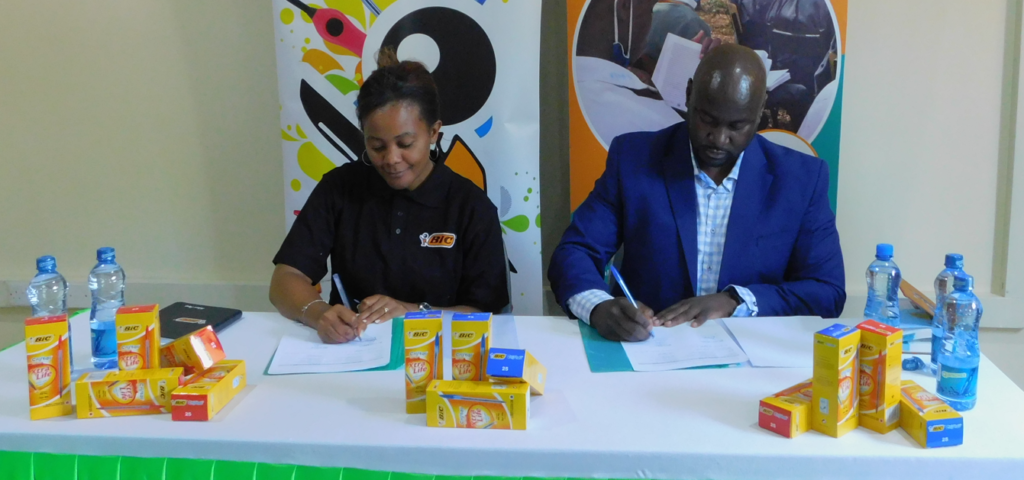
In its fourth year, BIC Kenya, donates necessary writing tools to students in need across the country.
In partnership with CFK Africa, BIC donated 300,000 writing tools to students this year, reaching an overall donation mark of 1M for 750,000 students.
The donation is part of the ‘Buy Me and BIC Will Donate a Pen’ initiative in Kenya. The initiative stems from BIC’s commitment to education, which aims to improve learning conditions for 250M students by 2025.
The handover event took place in CFK Office Kenya on the 15th of February in the presence of CFK Africa and BIC team members as well as representatives from the media.
“Education is at the core of what we do, and a focus area for us from a corporate responsibility standpoint. Our initiatives in the communities we operate in are often tailored towards supporting students and enhancing their learning environments – inside and outside the classroom,” said Salome Ngugi, Marketing Manager at BIC Kenya.
She added that one of the main learning challenges in the region, and in Kenya, is the lack of resources for students.
Read Also: 80 schools benefit from Epson education initiative
“Through our Buy Me and BIC Will Donate a Pen initiative we aim to provide our future generation with the necessary tools and put a pen in the hand of every inhabitant, to contribute towards a prosperous future for all.”
Jeffrey Okoro, FK’s Executive Director at CFK Africa, emphasized that education serves as the cornerstone of a child’s future.
He mentioned that partnering with the pen maker amplifies their commitment to providing quality education to every child, regardless of their background.
He also highlighted the introduction of the ‘Buy Me and BIC Will Donate a Pen’ initiative in East Africa in 2020.
The initiative’s goal is to ensure that a pen is donated for every BIC pen sold. He further noted that consistently drives initiatives aimed at enhancing learning conditions for students, both in Kenya and beyond.
Expensive School Materials
According to World Bank, every January just before the start of the new school year, parents in Kenya and across Africa often face a huge headache: purchasing textbooks, school materials and school uniforms for the school year ahead.
Textbooks are prohibitively expensive and often unavailable for many parents struggling to provide their children with a quality education According to a recent World Bank report, “Getting Textbooks to Every Child in Sub-Saharan Africa,” the shortage of teaching and learning materials undermines improvements in learning throughout the region.
The report states that shortage of teaching-learning materials undermine better learning in Sub-Saharan Africa. A survey of 22 countries in the region found that in 2010, the “median country” had 1.4 students per textbook in both reading and math in primary education.
In Kenya, the average number of textbooks per student was 3.1 according to the Service Delivery Indicators survey of 2013. There was also a large variation in the indicator. In only 10% of the schools, students did not have to share textbooks. At the other extreme, roughly 5% of schools had less than one textbook for five students.
Kenya is one of the countries that has struggled to make textbooks affordable and available for every child in school.


